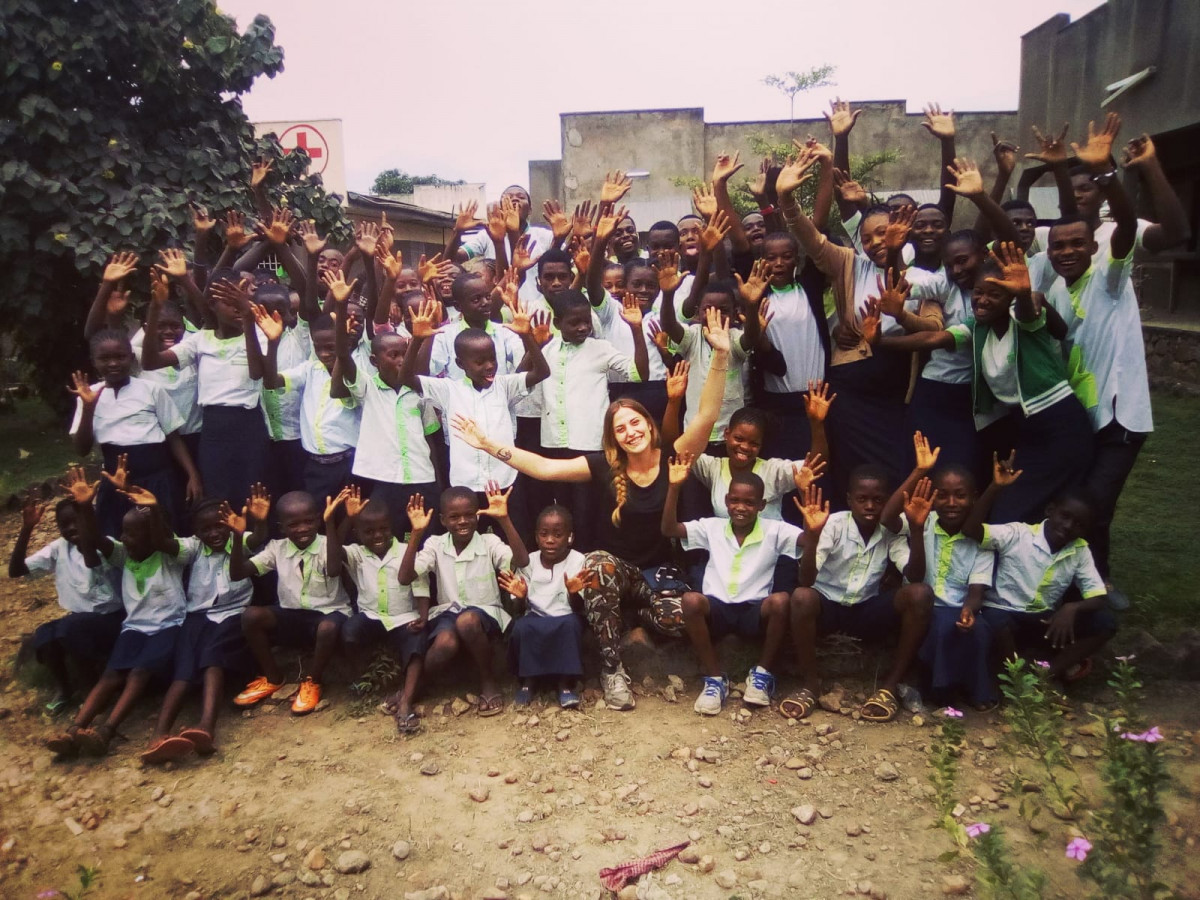
Workshop
Changing the world one note at a time: Clotilde’s commitment
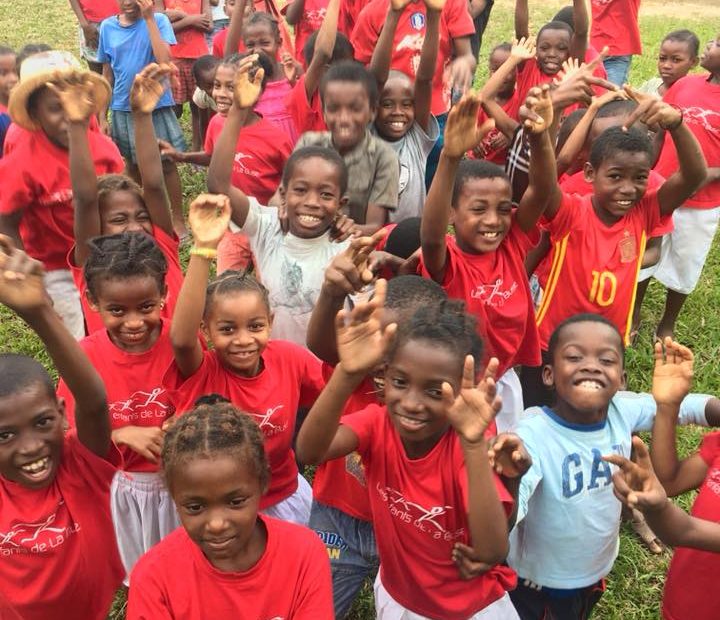
Clotilde Gaborit, a young French musician, recently spent two weeks in Madagascar, where she taught choral singing to children from two local primary schools. The experience left a mark on both her pupils and herself, and it confirmed her personal commitment to work in favour of a more just and fraternal world every day.
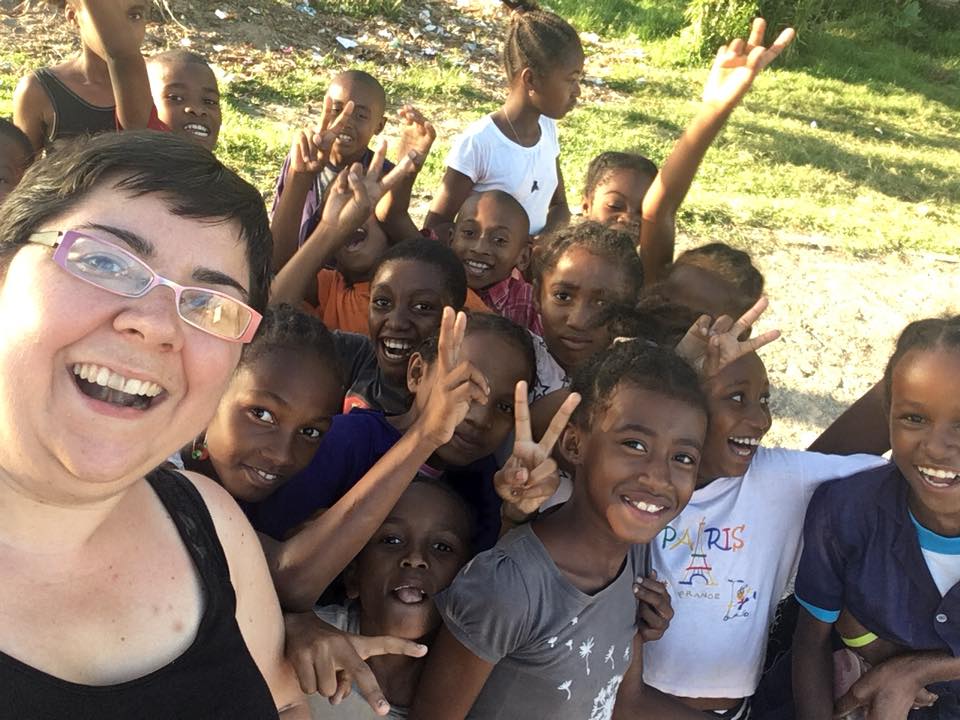
“There’s still some work to do, but today Mozart’s music echoed through the streets of Vohilava, Sainte-Marie Island, it’s amazing!”.
Clotilde Gaborit, a young French musician and choir conductor, writes about her day on Facebook. It’s May 2018, and she is in Madagascar on a mission to involve the local kids in a choir experience, on an island that is little more than a strip of land off the country’s East coast. Her astonishment is understandable: after just seven days of rehearsals, ninety kids who had never had a singing class in their life were able to perform a mini-concert consisting of nine songs, from traditional African hymns to a fragment of a Mozart canon in Latin.
How was this possible? The story began in France, where Clotilde came into contact with Les Enfants de la Buse, an association of physicians and osteopaths which, since 2011, has been organising yearly missions in the African country, offering health care to more than a thousand children through the local elementary schools.
“Devoting my time to a humanitarian cause has always been a dream of mine”, says Clotilde. After organising a concert to support the association’s cause, she felt the desire to do something more: set up her own music project in Africa, with the aim of offering kids not just material aid, but also a formative experience and new knowledge. Clotilde launched into an intense fundraising campaign, involving associations and clubs in the dream of teaching the Malagasy kids how to sing, and collecting the amount she needed to cover her travel expenses in just over a month.
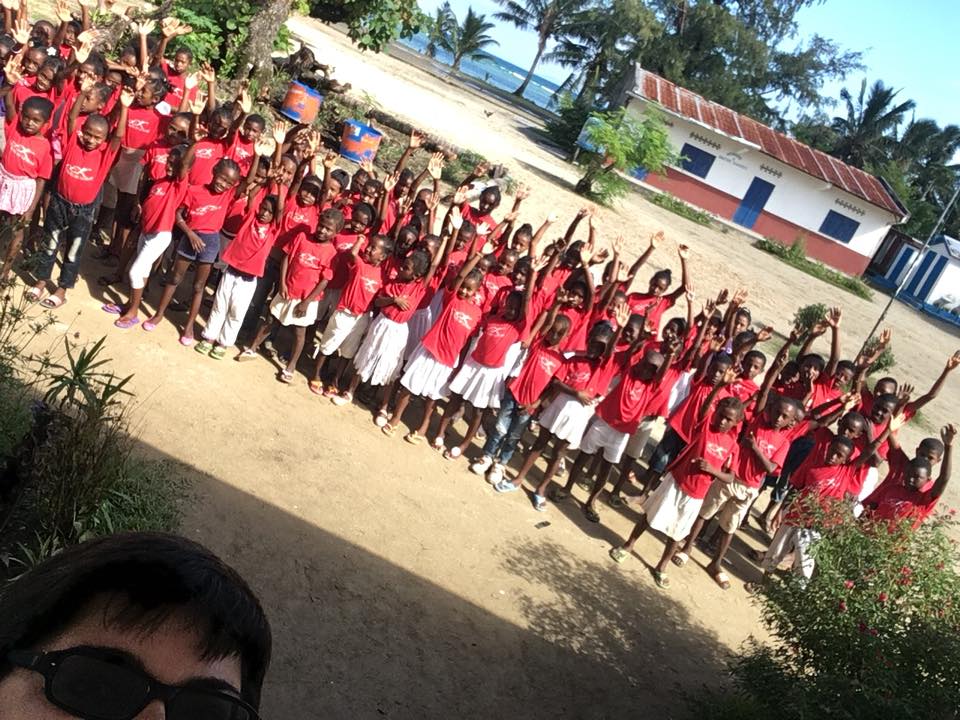
On 30th April, the musician arrived on the island: it was the beginning of a completely new routine that would last two weeks, made up of long tuk-tuk rides and surprising encounters.
“I taught in two schools: the first one, the Saint-Joseph school, was located off the main road and surrounded by forest. People there live in very small houses and keep a slow pace, they don’t worry about tomorrow. In fact, in the Malagasy language, there is no future tense”, she tells me.
The other, bigger school is located closer to the main road in Vohilava, the main village of the area. Just like in Saint-Joseph, the kids there had no musical knowledge before they met Clotilde.
“It was a huge surprise, I taught them to sing the seven notes by associating each note to a hand sign, and they made it into a song which they wouldn’t stop singing!”, she recalls.
After a lesson on rhythm and body percussions, the children learnt to perform some traditional songs from the African repertoire and other more complex pieces. No one, apart from some of the teachers, spoke French, so even asking the kids to stand in three rows became an epic undertaking. But gestures, smiles and the few necessary words did the job and the concert was a success, to the children’s great joy.
“When, after rehearsals, I walked around the village and I heard them sing, it gave me quite a feeling”, she tells me with pride.
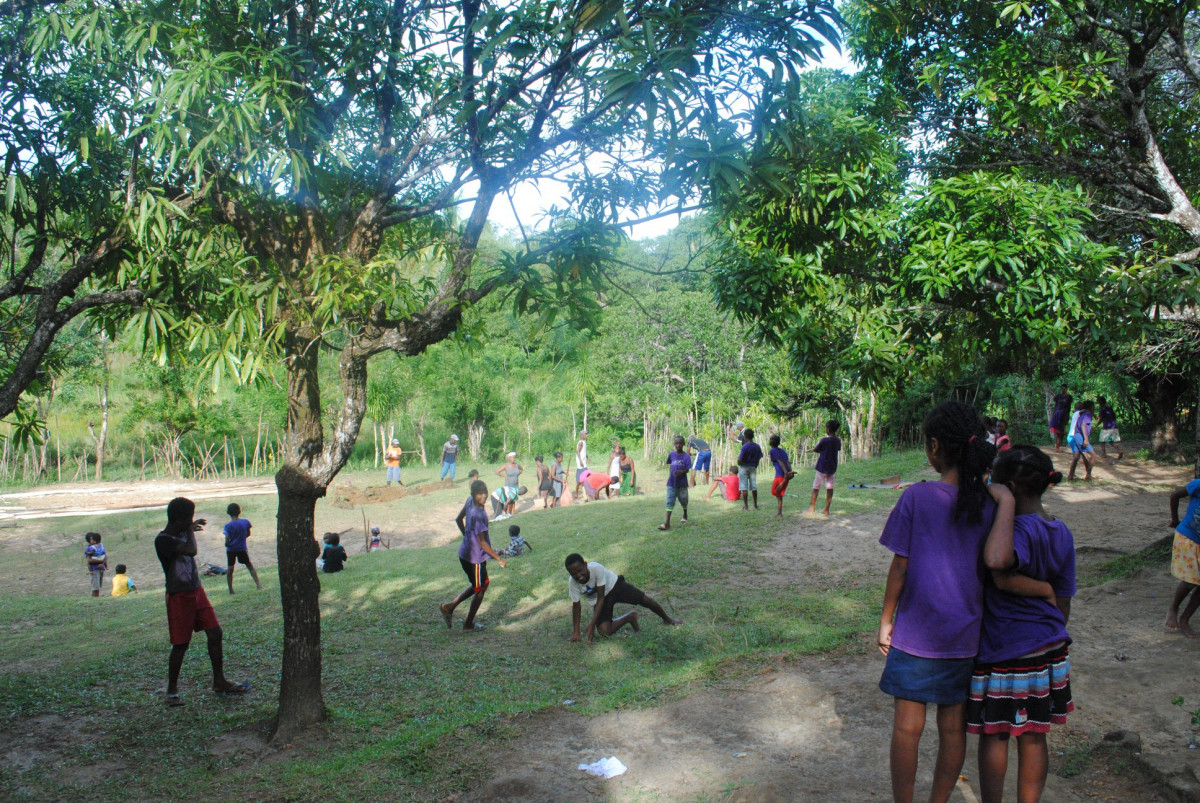
However, there have also been moments of doubt.
“When I first arrived at one of the schools, there was a moment in which I asked myself what on earth I was doing and why I was there”, she recalls. “I told myself: these kids eat once a day, they hardly have any water to drink, and you’re here to teach them how to sing ‘Kumbaya My Lord’? It doesn’t feel right”. Madagascar is the fifth poorest country in the world, and even though the inhabitants of Sainte-Marie Island can count on resources like rice and manioc for their subsistence, they still live with very little.
How can music help, then?
“I believe in the social and health benefits of musical practice”, says Clotilde. “I taught the children the value of doing something together, of creating beauty. On top of that, music is very important for the body, because it encourages physical exercise, and for the brain, because it develops creativity and has a positive influence on the child’s growth”.
The experience went beyond the singing, as the kids from inland had never seen the sea: for them, the day of the concert — which took place just a few steps away from the beach — was also the day of an extraordinary discovery.
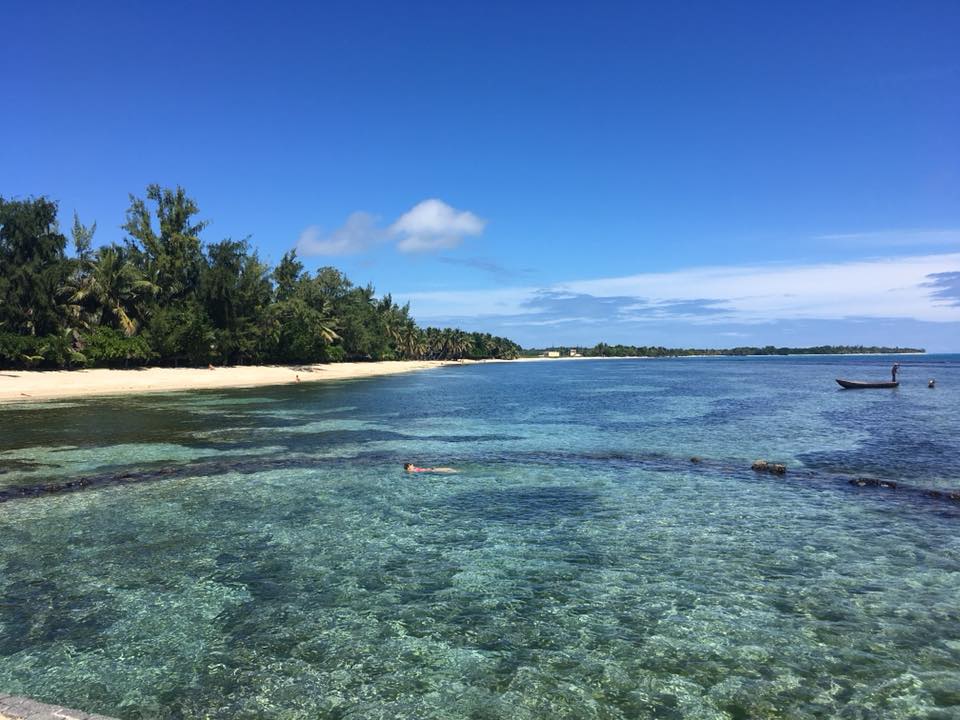
“In Africa, it is not easy to make people from different tribes come together”, Clotilde explains, “but my naivety pushed me to try, and in the end it made it possible”.
So, what’s next?
“I can’t wait to go back to Madagascar”, says Clotilde with dreamy eyes “The crucial step, though, will be to figure out how to ensure the continuity of the project, and above all how the people there can make the project their own”.
One of her ideas is to train local teachers so that they can take charge of the children’s musical education, while she could go back once a year for a week-long workshop, during which the kids could learn other subjects too, like French or sports.
Meanwhile, it is no surprise that Clotilde feels like this journey has changed her life.
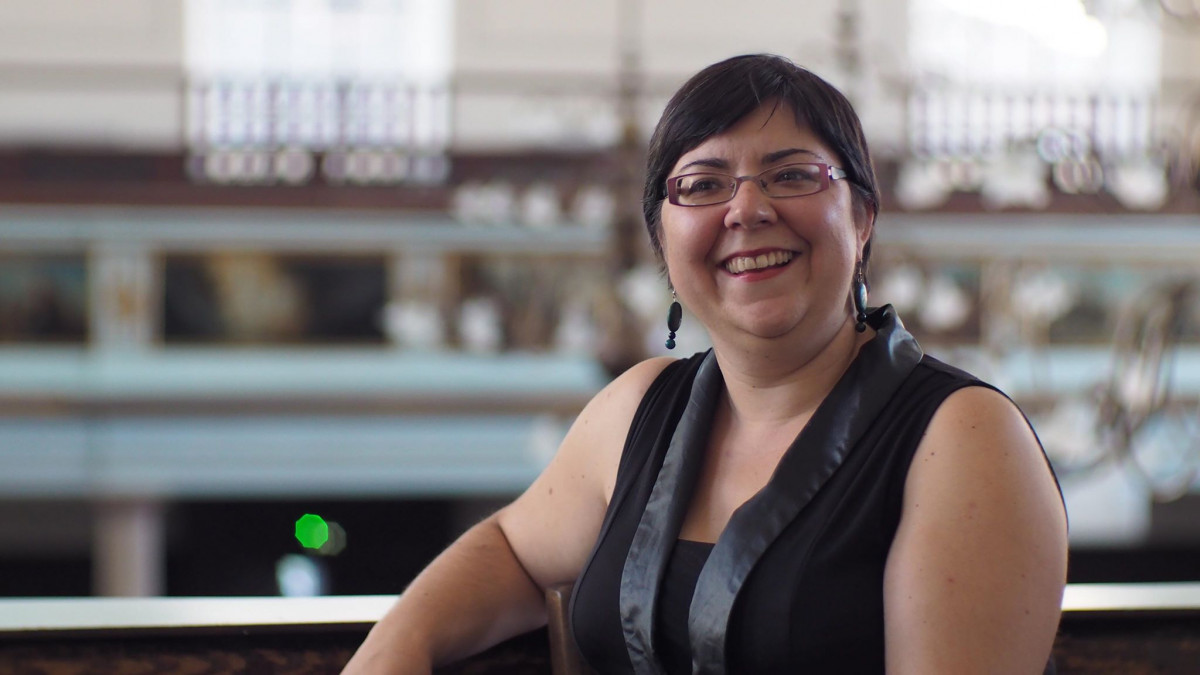
“Seeing the poverty in which people live there made me feel very angry at first, because the world does nothing to change things”, she says. “Then I realised that, personally, I can’t do much for Madagascar, but there’s actually a lot that I can do here, where I live and work every day”.
One of the lessons that Clotilde has started to put into practice back home is gentleness: the serenity she experienced in Madagascar convinced her to stop raising her voice in front of her French students, and to give them all the chances they deserve. She wants to foster their environmental consciousness, something that, unfortunately, is still lacking in Madagascar, and to teach them to treat each other with respect, just like their African peers do. Because changing the world starts from one’s everyday life, it begins with the little things.
By Emanuela Cavaleri

